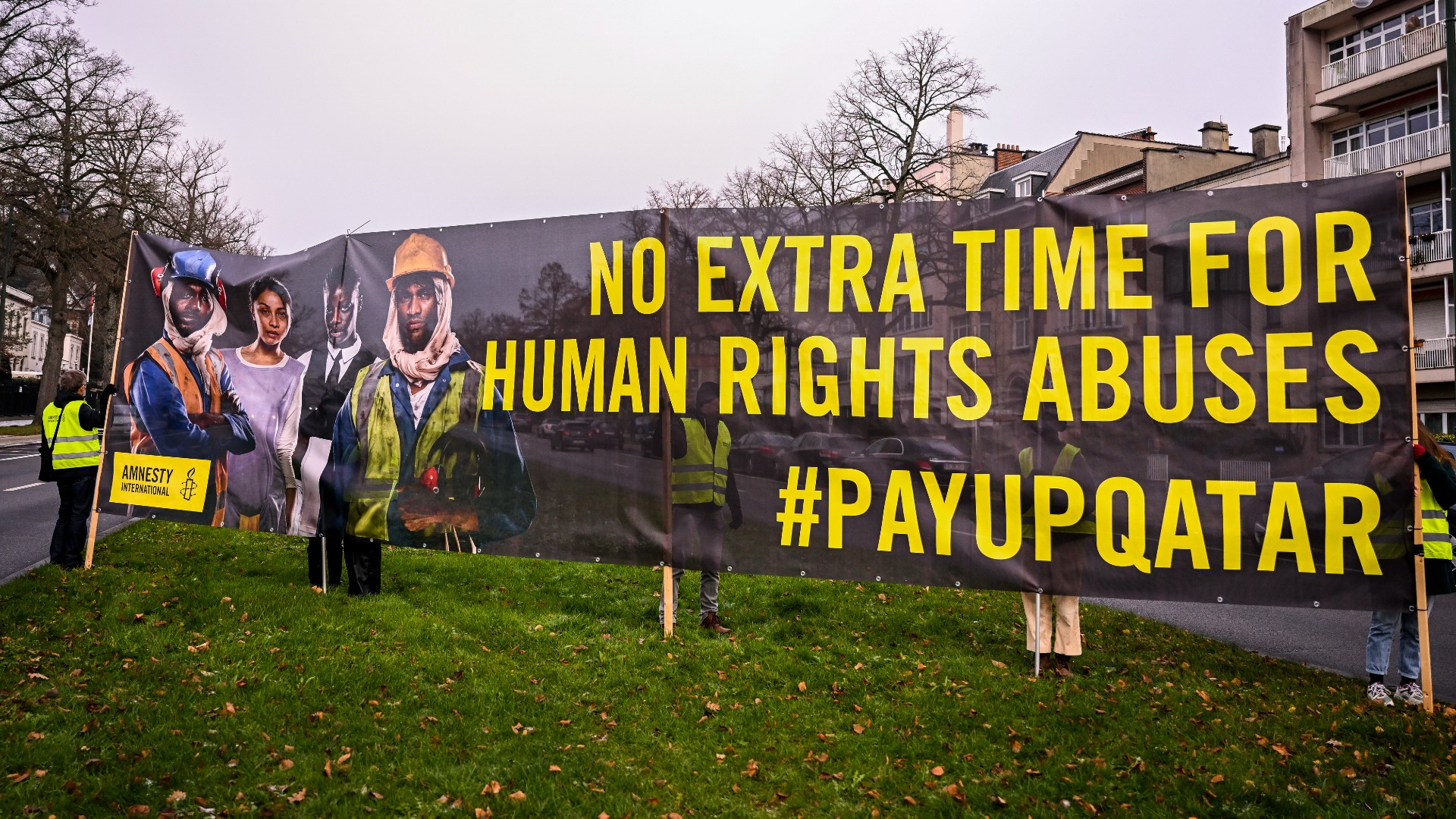During the World Cup in Qatar, migrant labourers were often exploited for labor, a new report by the Business and Human Rights Resource Center has revealed. Almost 80 workers come out about their hardship and reiterate the need for relief.”FIFA provided us with cards that had numbers on them that we could call. All those figures, meanwhile, disappeared as soon as the FIFA World Cup was over, and it appears that FIFA closed shop after the competition and didn’t care about those who were left behind, a security guard from Pakistan said. “Nothing happened when I filed complaints with the labor court requesting a change of employers. The manager claimed to be friends with the labor court officer,” a Nepali chef also revealed. As migrant laborers create a disturbing image of the labor rights abuse that occurred during the Qatar World Cup in November and December 2022, FIFA has some important issues to address. Workers continue to express their outrage about exploitative hiring tactics and the appalling living and working circumstances they experienced in Qatar in a study released today by the Business & Human Rights Resource Centre. These testimonials, which were released six months after a tournament that brought in a record-breaking USD7.5 billion in earnings for FIFA, highlight how the game’s organizers, sponsors, and football teams failed to uphold human rights despite their pre-tournament promises.All 78 employees who participated in the interview reported being subjected to labor exploitation while working for the World Cup, including 20 who were hired by official FIFA World Cup contractors for the Qatar 2022 competition and 17 who worked in World Cup stadiums and other FIFA-approved locations. Recruitment fees were frequently charged: 93% paid unlawful or unreasonable sums to secure employment, and two-thirds were indebted to banks, family members, and friends to meet the expense. Additionally, migrant workers had to deal with horrendous working conditions, reports of wage theft (58), the inability to get paid for overtime work (36 out of 69 workers), contracts that were not what had been promised (45), and being paid less than what had been agreed upon (27), which was especially egregious given the considerable debt that many migrant workers had to incur in order to find employment. On the pitch, he misses sitters. Off the pitch, he lacks common sense##NAJAVA_MECA_7318506##Key labor law changes, such as the elimination of the exploitative Kafala system, were made in Qatar ahead of the World Cup, but implementation has been patchy and the promised gains for migrant workers have remained modest. The employees who were interviewed claimed they were not free to switch employment. Many people claimed they were unable to file complaints because they feared punishment from their employers. Of those who did file complaints, 43% reported experiencing retaliation, which included terminations, detentions, and deportations. The Human Rights Grievance Mechanism at FIFA was only known to 11 employees, and none of them said they knew anyone who had ever utilized it.The testimonies included in the research make it clear that businesses consistently neglected to interact with employees directly in order to comprehend and reduce the risks they were experiencing. Less than 20% of the workers interviewed during such assessments were asked about working conditions, despite the fact that larger companies—including international brands and even those partially or entirely controlled by governments—failed to conduct thorough checks to root out violations of labor rights in their supply chains.”Workers have detailed their daily experiences in Doha during the tournament and they are deeply concerning,” said Isobel Archer, Senior Researcher, Labour & Migrant Worker Rights, Business & Human Rights Resource Centre. “FIFA claimed the Qatar World Cup 2022 would drive improvements for migrant workers’ rights in the country. Many of the migrant workers who struggled to make the World Cup a success were unable to earn enough money to even pay off the debts they accrued to secure their employment, even though FIFA made a record-breaking USD7.5 billion from the tournament.”Workers who welcomed spectators, maintained team lodgings, and ensured visitor safety at World Cup venues have spoken to us. In contrast to the glamor and glamour of the red carpet put out by the Qatari Government and FIFA for sponsors and football players, their reality was one of long hours and being burdened by debt taken out to pay for employment that did not pay them what was promised.”There is no justification for the businesses that benefited from the abuse of migrant labor not to take note of what occurred in Qatar. Companies, both local and global, continue to disappoint the foreign labour they depend on in spite of promised improvements. To learn how people are being handled in their workplaces and supply networks, they must put into practice real, worker-centric due diligence. At the absolute least, FIFA, football associations, corporations, and local contractors must make amends for the abuse that occurred under their watch and during their tournament as they prepare for the next men’s World Cup in 2026.” Isobel concludes.

